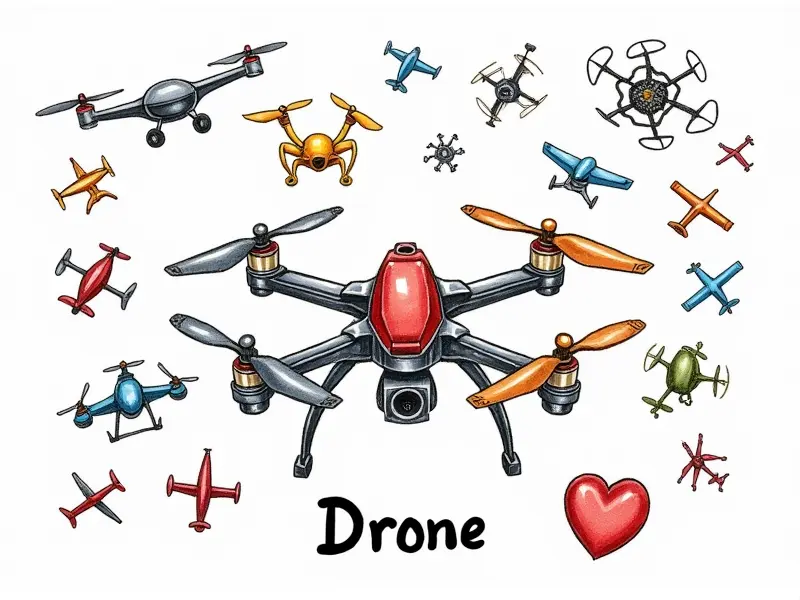What are drone control systems?

Understanding Drone Control Systems Basics
Drone control systems are essential components of modern unmanned aerial vehicles (UAVs) that enable operators to manage and navigate drones efficiently. These systems encompass a range of hardware and software technologies designed to ensure the safe, effective, and precise operation of drones in various applications.
Top Features of Modern Drone Control Systems
- Real-Time Monitoring: Advanced control systems provide real-time data on drone status, including battery life, altitude, speed, and location.
- Autonomous Flight Modes: These modes allow drones to operate without direct human intervention, using pre-programmed routes or GPS waypoints.
- Remote Control Capabilities: Operators can control drones from a distance via dedicated controllers or mobile apps.
Essential Components of Drone Control Systems
- Flight Controllers: These devices process sensor data and manage the drone's flight dynamics, ensuring stability and maneuverability.
- Sensors: Various sensors such as GPS, accelerometers, gyroscopes, and cameras provide critical information for navigation and operation.
- Data Links: Communication systems that transmit data between the drone and ground control stations or operators.
Benefits of Advanced Drone Control Systems
The implementation of advanced drone control systems offers numerous advantages, including enhanced safety, improved efficiency, and expanded operational capabilities. These systems enable drones to perform complex tasks with precision and reliability in diverse environments, from agriculture to construction and beyond.
Choosing the Right Drone Control System
- Determine Your Needs: Identify your specific requirements based on intended use cases such as aerial photography, surveying, or inspection.
- Evaluate Compatibility: Ensure that the control system is compatible with your drone model and any additional hardware you plan to integrate.
- Consider Scalability: Opt for a system that can grow with your needs as your operations expand.
Common Issues with Drone Control Systems
- Signal Interference: External factors like buildings, trees, or other electronic devices can disrupt communication between the drone and control station.
- Battery Life Limitations: Short battery life can restrict operational duration, impacting mission effectiveness.
- Maintenance Requirements: Regular upkeep is necessary to ensure optimal performance of all system components.
Future Trends in Drone Control Technology
The future of drone control systems promises significant advancements, including the integration of artificial intelligence (AI) for smarter decision-making and enhanced autonomy. Additionally, improvements in data processing capabilities will enable real-time analytics and predictive maintenance.
Beginner's Guide to Drone Control Systems
For newcomers to the world of drones, understanding the basics of control systems is crucial. Start by familiarizing yourself with key components like flight controllers and sensors, then explore different types of control modes available in modern systems.
Key Features in Drone Control Systems
- Intelligent Flight Modes: Automated routines designed to simplify complex maneuvers.
- Dynamic Obstacle Avoidance: Technologies that enable drones to detect and avoid obstacles autonomously.
- Multi-Rotor Support: Systems capable of managing multiple drone units simultaneously for coordinated operations.
Innovations in Drone Control Technology
Ongoing research focuses on developing more sophisticated control systems that enhance operational flexibility and resilience. Expect to see innovations such as improved data analytics, enhanced cybersecurity measures, and seamless integration with other smart technologies.
Mastering Drone Control System Fundamentals
To truly master the intricacies of drone control systems, it's essential to delve deeper into their technical aspects. This includes understanding how different components interact and contribute to overall system performance, as well as staying updated on emerging trends in drone technology.
Conclusion
In conclusion, drone control systems play a pivotal role in the functionality and effectiveness of unmanned aerial vehicles across various industries. By choosing the right system tailored to your specific needs and staying informed about technological advancements, you can maximize the potential of drones for your applications.

